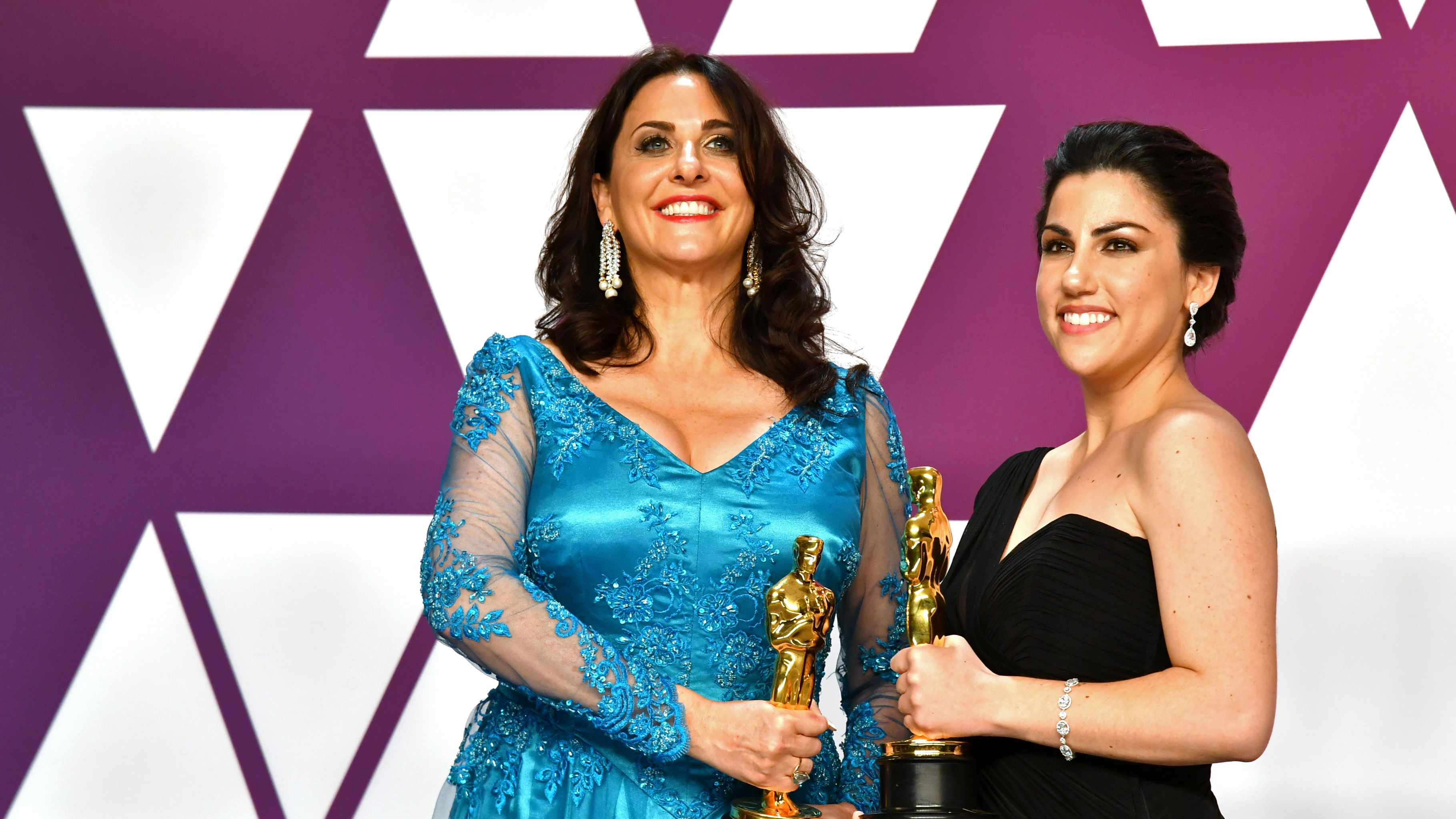It's a Miracle That a Period Documentary Just Won an Oscar
Period. End of Sentence. just did something incredible.

Menstrual equity—the fight to ensure that people who get their periods have access to the products and support they need—is a hard fight. Forget for a moment about the stigma, which is a huge aspect of making periods a cause because some people find it too “gross” to talk about. And forget also about how far-reaching the issue is, impacting the wealthiest among us and the most marginalized. What makes it a really hard issue is that it’s an issue that only affects women (though not only women get periods) and it’s really hard to make people care about women.
The documentary short Period. End of Sentence. just won an Oscar, and its creators, Rayka Zehtabchi and Melissa Berton went up to accept the award, surrounded by other women. The film shows women in Hapur, India, who work to make affordable sanitary pads out of recycled materials and also educate their communities about menstruation to help end the stigma. It’s by far the most uplifting of the Documentary Shorts that were nominated, and it shows not only how women are making their voices heard, but how even people who feel too small to make an impact can change a lot of lives. The documentary is on Netflix now (here’s a link).
But this film had a lot stacked against it. In an anonymously written article for The Hollywood Reporter, an academy voter said: “Also Period. End of Sentence—it's well done, but it's about women getting their period, and I don't think any man is voting for this film because it's just icky for men.” Really? Ugh.
The fact of this film winning, of “menstrual equality” getting uttered onstage at the Academy Awards, is a miracle to anyone who has been following this issue. (Marie Claire covers it quite a bit if you want to get acquainted.) It so often feels like shouting into a void. Period stigma is dangerous: In a lot of places in the U.S., women don’t have access to menstrual products they need, be it because of access or price or embarrassment. In India, where the film takes place, a period can often make a girl miss school. In plenty of places in the world, a period could mean a woman faces violence.
“A period should end a sentence , not a girls education” - best quote of the night ✨#OSCARS @NoShamePeriod #bestdocshortFebruary 25, 2019
“I can’t believe a film about menstruation just won an Oscar,” Zehtabchi exclaimed in her acceptance speech. Honestly? Neither can anyone else. And we’re so fortunate that it did.
For more stories like this, including celebrity news, beauty and fashion advice, savvy political commentary, and fascinating features, sign up for the Marie Claire newsletter.
Get exclusive access to fashion and beauty trends, hot-off-the-press celebrity news, and more.
Cady has been a writer and editor in Brooklyn for about 10 years. While her earlier career focused primarily on culture and music, her stories—both those she edited and those she wrote—over the last few years have tended to focus on environmentalism, reproductive rights, and feminist issues. She primarily contributes as a freelancer journalist on these subjects while pursuing her degrees. She held staff positions working in both print and online media, at Rolling Stone and Newsweek, and continued this work as a senior editor, first at Glamour until 2018, and then at Marie Claire magazine. She received her Master's in Environmental Conservation Education at New York University in 2021, and is now working toward her JF and Environmental Law Certificate at Elisabeth Haub School of Law in White Plains.